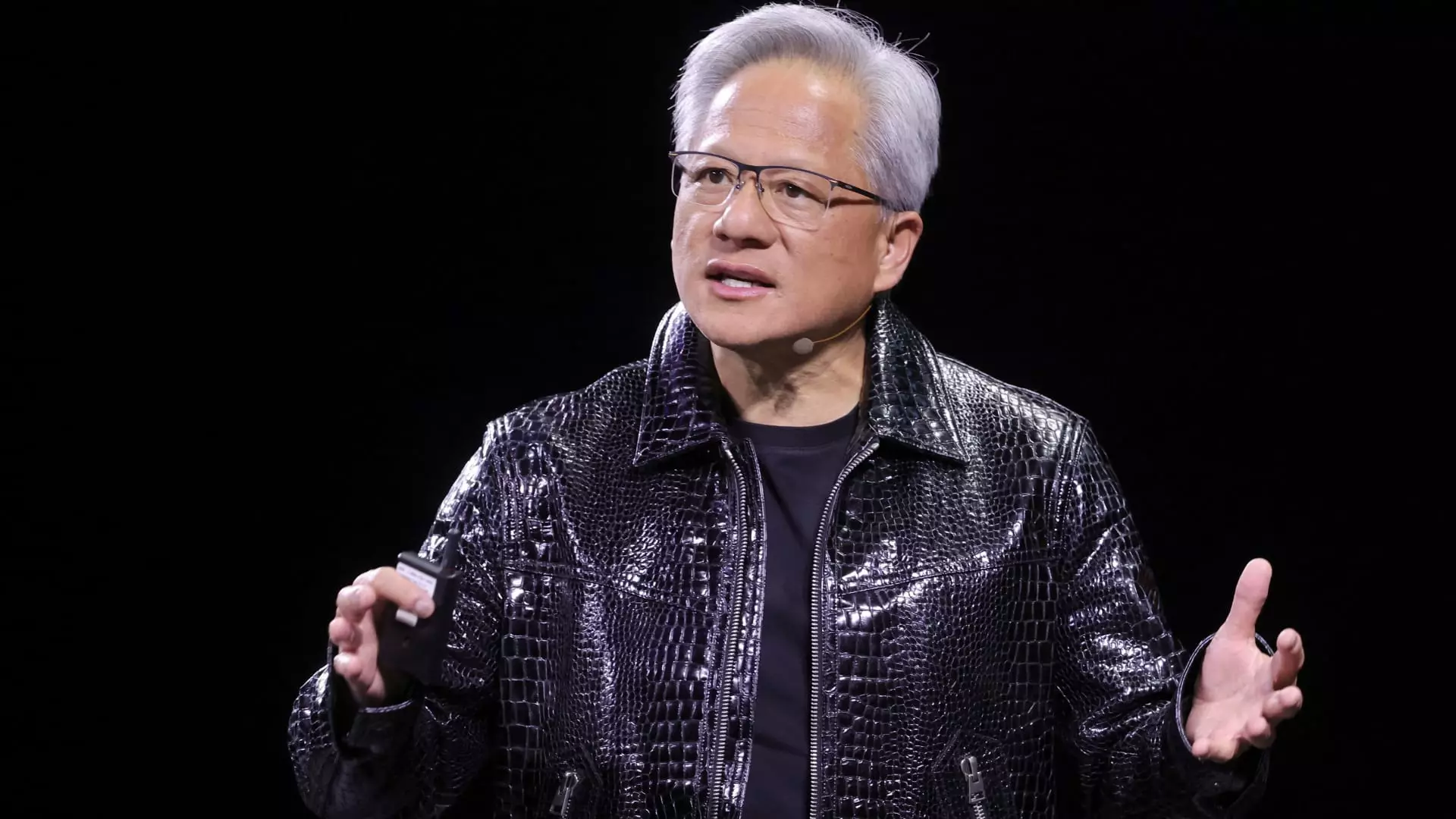In the ever-evolving landscape of technology, quantum computing stands as both a beacon of hope and a source of skepticism. Nvidia CEO Jensen Huang’s recent remarks during the company’s inaugural “Quantum Day” have thrown a spotlight on the complexities of this burgeoning field, revealing a disillusioned reality that investors and stakeholders must navigate. Rather than soothing the market’s fears, Huang’s attempt to recalibrate expectations may instead have exacerbated the sector’s volatile climate, causing significant dips in the stocks of several key quantum firms. This event not only raised new doubts about the timeline for viable quantum technology but also underscored the pressing need for a more cautious approach to its marketing and integration.
The Market’s Reaction: A Test of Confidence
When Huang first hinted at the striking possibility that quantum computing would require at least two decades before becoming genuinely usable, it triggered a chain reaction in the stock market—one that was not fully understood until now. Investors, who had initially flocked to the sector with the promise of groundbreaking advancements, found themselves grappling with the harsh reality of delays and unfulfilled expectations. The 18% slide in D-Wave shares, coupled with similar declines from Rigetti Computing and IonQ, exemplified the market’s collective unease. It is clear that Huang’s concession did little to alleviate the fears that have gripped quantum stocks since January. Instead of a soothing balm, his statement appeared to be hitting the sector with the blunt force of unvarnished truth.
Expectations vs. Reality: The Branding Conundrum
Huang aptly pointed out that equating quantum systems with traditional computers sets a precarious precedent. This branding misalignment creates unrealistic expectations not only for investors but also for the very researchers driving innovation in the field. The misunderstanding arises when the hype around quantum technology overshadows the integral role that it may play alongside classical systems—a perspective largely overlooked until now. This nuanced approach is where Huang’s comments hold merit; quantum computing must be framed as a complimentary tool rather than a stark replacement. By shifting the narrative, it may be possible to salvage some credibility for a sector that’s increasingly under scrutiny for its lofty promises.
Nvidia’s Strategic Position: The Double-Edged Sword
Nvidia’s role in the quantum computing space offers a unique juxtaposition. As a hardware titan, the company stands to benefit immensely from the research and development of quantum technologies. The integration of graphics processing units (GPUs) with quantum chips is nothing short of revolutionary and could fundamentally reshape computational capabilities across various sectors. Yet, Huang’s transparent admission of the long timeline required for quantum advancements puts Nvidia in a precarious position. On one hand, they are emerging as key enablers of quantum research; on the other, they seem to be navigating treacherous waters filled with investor skepticism and market fluctuations.
The Road Ahead: A Call for Caution
In what can be described as a unique predicament, Huang embodied both optimism and realism during his remarks, acknowledging the monumental potential while simultaneously tempering expectations. As investors remain wary, it becomes imperative for industry leaders to adopt a more measured approach to innovation. The techno-optimism that once reignited interest in quantum computing now runs the risk of devolving into a cautious modus operandi, and for good reason—investor trust is fragile and can evaporate at the slightest whiff of over-promising.
Nvidia’s Quantum Day may serve as an important inflection point for the industry, one that prompts a sobering reflection on the genuine implications of quantum computing. The gap between expectation and reality must be bridged, and the lofty dreams of the industry should not blind stakeholders from assessing the tangible risks they face. As quantum technology continues to unfold, its advocates must prioritize maintaining a narrative grounded in reality, lest both public perception and investor confidence continue to plummet.


Leave a Reply